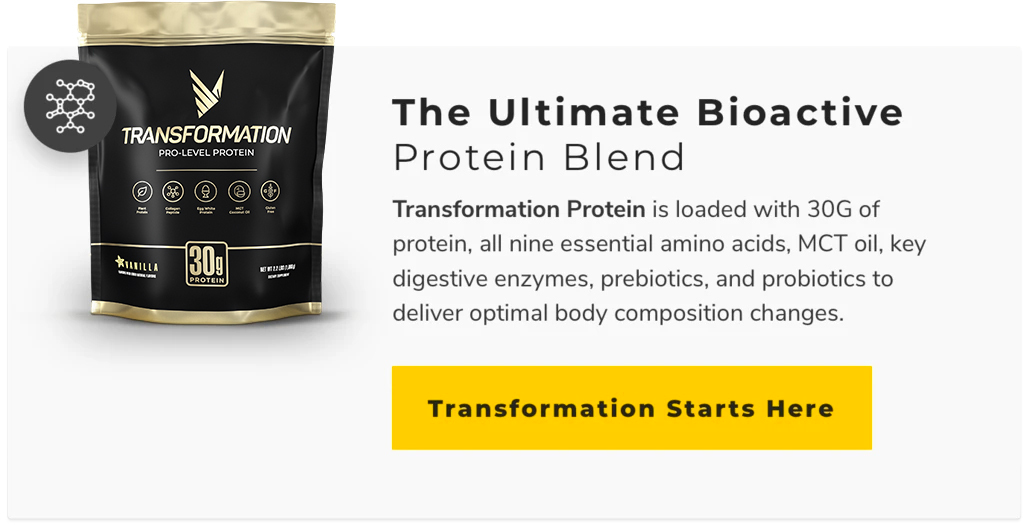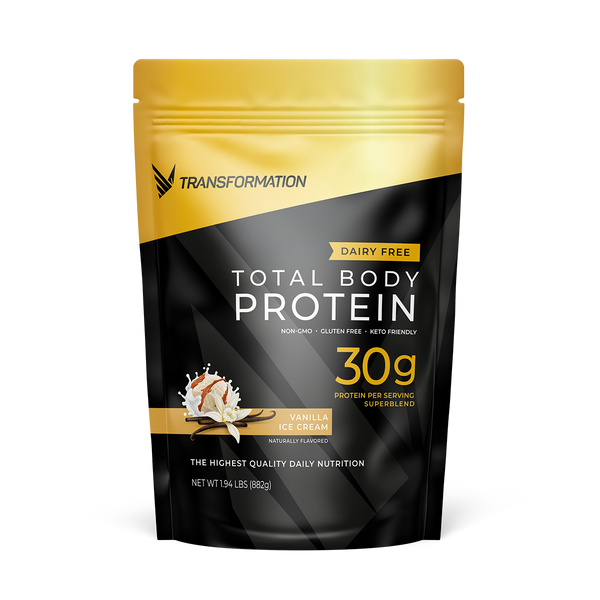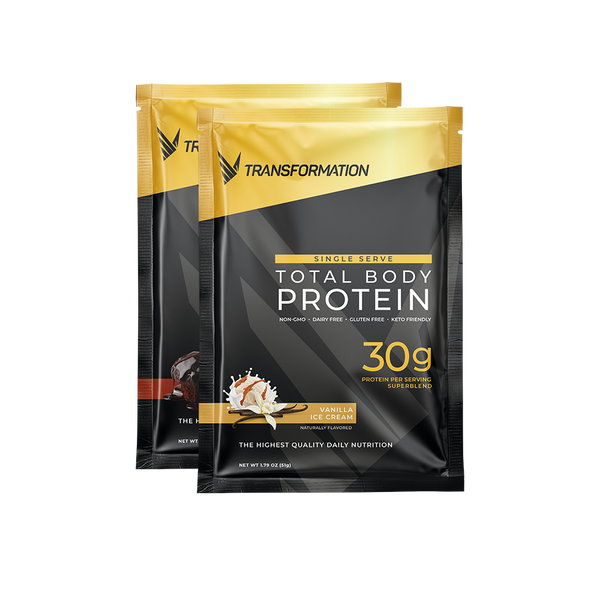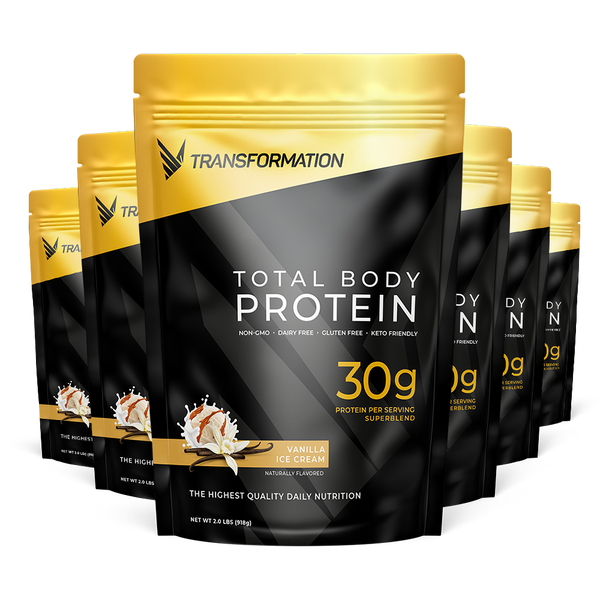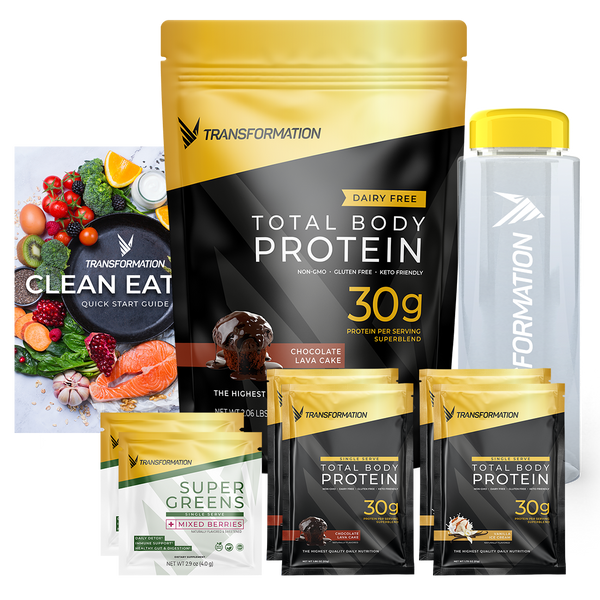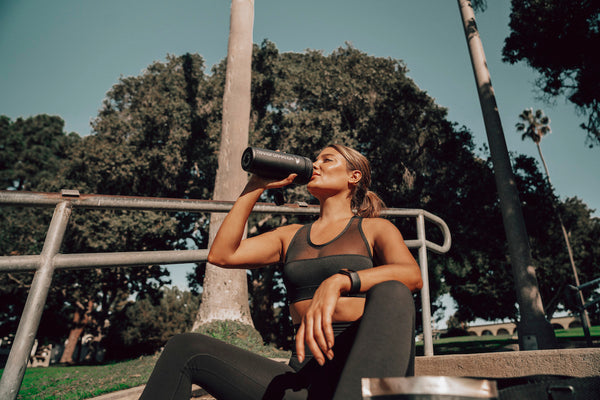
Complete vs. Incomplete Protein: What’s the Difference?
What Is Complete Protein?
Protein is a vital macronutrient, made up of amino acids. Put simply, our bodies need a certain mix of these powerhouses in order to thrive. While some we produce naturally, others we rely on getting from our diet. It is very important to ingest these through food or supplements because it's what helps our bodies function properly.
9 Essential Amino Acids
While there are many amino acids, studies have come to differentiate between essential and nonessential amino acids. These nine amino acids that we need from our diet are called essential amino acids (EAA):
- Histidine
- Isoleucine
- Leucine
- Lysine
- Methionine
- Phenylalanine
- Threonine
- Tryptophan
- Valine
Unfortunately, not every source of protein offers all of these at once. Incomplete proteins are those that do not deliver all 9-essential amino acids. So it's important to consider what are the two categories of protein while you count your macros and look at your overall nutrition intake.
Incomplete Protein
While many foods offer protein, they may lack one or more of the nine EAAs. Many plant-based protein sources fall into this category. That doesn’t mean that they lack nutrition. Many leucine rich foods like legumes actually offer a lot of protein and are very lean options. But when examining your nutrition routine it's helpful to look at the big picture and see what your body may be missing. Vegans or vegetarians are among the most common dietary disciplines that tend to be missing proteins. Here are some examples of foods that are considered incomplete proteins:
- Rice
- Veggies
- Legumes
- Nuts/seeds
- Whole grains
Complete Proteins
Complete proteins have all nine of the EAA that our bodies need to thrive. Typically, these tend to come from animal sources.
- Chicken
- Eggs
- Dairy
- Seafood
If you are not eating animal proteins or taking the right supplements, this means that your body might be lacking some of the amino acids it needs because you’re relying solely on incomplete proteins.
The Importance of Complete Protein
Getting enough protein daily is essential for your body in multiple ways. Protein the macronutrient that aids in muscle growth and repair and in the creation and maintenance of enzymes and hormones that impact a number of processes within your body. It does way more than just help you build muscle.
But it’s not just about getting enough of any protein, you need to source high-quality, clean, and complete protein. When you choose to ingest only incomplete proteins, you run the risk of not letting your body get the right dose of amino acids to keep you looking, feeling, and performing your best. It’s easy for most people to make sure they’re getting all the necessary EAAs simply from a healthy, balanced diet. But for those who are on special diets like veganism, vegetarianism, or for those focused on weigh loss through a calorie-restricted diet it is key to supplement with a complete protein source can help backfill any gaps.

How to Get the Complete Protein Your Body Needs
Signs that you are not getting enough protein daily could include fatigue, strength-loss, difficulty focusing, overeating, inability to build and maintain muscle, increased injury, and general feelings of never being satiated after a meal. Protein is the easiest way to feel full and get energy. To make sure you get all the complete protein that your body needs is to find a high-quality, complete protein supplement. This could be in pill or protein powder form. You need to look for complete proteins with clean ingredients––no fillers or sweeteners.
Many people don’t have the time or the appetite to make sure they are eating enough protein in a day. Supplements with multiple types of protein can help get you more bang for your buck, and help fill any voids your diet may be missing. Check the amino acid profile on your protein supplements. It's best to find blends with some kind of animal protein, collagen and greens incorporated into the mix.
This will help to make sure you get all the complete protein that your body needs to thrive.
Source the Best, Complete Protein and Get the Most from Your Nutrition
Take a moment to go through the check-list on how you feel everyday. Do you have enough energy, focus, and power to tackle your day? What about your workouts? If the answer is no, then you probably need more complete protein in your life. Don’t stop at plant protein, make sure that you have the added nutrition of animal protein––even if its just vegetarian-friendly egg whites to fuel your body.
Transformation Protein powder is a complete protein formula that is packed with all nine amino acids your body needs. It is one of the few that is dairy-free and contains only natural sweeteners to help you get the results you want. Once you know the correct amount of daily protein intake for you and you’re taking the best supplements, you’ll be amazed how good you feel everyday.


